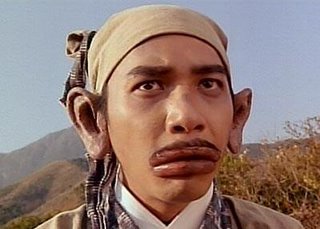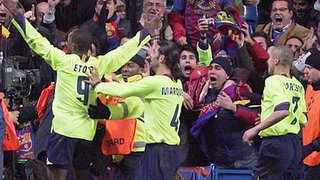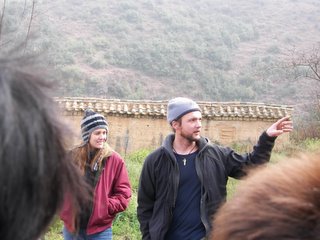 two of the most intelligent and attractive people I admire.
two of the most intelligent and attractive people I admire.
nothing could aptly describe. no one can rightly challenge. no soul could seemly defy. welcome to my world. where i make the rules and you stick by them.







The light was leaving
in the west it was blue
The children's laughter sang
and skipping just like the stones they threw
the voices echoed across the way
it's getting late
It was just another night
with the sun set and the moon rise
not so far behind
to give us just enough light
to lay down underneath the stars
listen to papa's translations
of the stories across the sky
we drew our own constellations
The west winds often last too long
the wind may calm down
nothing ever feels the same
Sheltered under the Kamani tree
waiting for the passing rain
clouds keep moving to uncover the scene
stars above are chasing the day away
to find the stories that we sometimes need
Listen close enough
all else fades
f
a
d
e
sa
w
a
y
.
.
.
It was just another night
with the sun set and the moon rise
not so far behind
to give us just enough light
to lay down underneath the stars
listen to all the translations
of the stories across the sky
we drew our own constellations
PINELLAS PARK, Fla. - Terri Schiavo, the severely brain-damaged woman who spent 15 years connected to a feeding tube in an epic legal and medical battle that went all the way to the White House and Congress, died Thursday, 13 days after the tube was removed. She was 41.
Schiavo died at the Pinellas Park hospice where she lay for years while her husband and her parents fought over her in the nation's most bitter — and most heavily litigated — right-to-die dispute.
The feud between the parents, Bob and Mary Schindler, and their son-in-law continued even after her death: The Schindlers' spiritual advisers said the couple had been at their daughter's besides minutes before the end came, but were not there at the moment of her death because Michael Schiavo did not want them in the room.
"And so his heartless cruelty continues until this very last moment," said the Rev. Frank Pavone. He added: "This is not only a death, with all the sadness that brings, but this is a killing, and for that we not only grieve that Terri has passed but we grieve that our nation has allowed such an atrocity as this and we pray that it will never happen again."
David Gibbs III, a lawyer for the Schindlers, said: "This is indeed a sad day for the nation, for the family. ... God loves Terri more than they do. She is at peace."
Michael Schiavo's attorney, George Felos, announced the death but had no immediate comment beyond that.
A small group of activists sang religious hymns outside the hospice, raising their hands to the sky and closing their eyes.
Dawn Kozsey, 47, a musician who was among those outside Schiavo's hospice, wept. "Words cannot express the rage I feel," she said. "Is my heart broken for this? Yes."
Schiavo suffered severe brain damage in 1990 after her heart stopped because of a chemical imbalance that was believed to have been brought on by an eating disorder. Court-appointed doctors ruled she was in a persistent vegetative state, with no real consciousness or chance of recovery.
The feeding tube was removed with a judge's approval March 18 after Michael Schiavo argued that his wife told him long ago she would not want to be kept alive artificially. His in-laws disputed that, and argued that she could get better with treatment. They said she laughed, cried, responded to them and tried to talk.
During the seven-year legal battle, Florida lawmakers, Congress and President Bush tried to intervene on behalf of her parents, but state and federal courts at all levels repeatedly ruled in favor of her husband. The case focused national attention on living wills, since Schiavo left no written instructions in case she became disabled.
After the tube that supplied a nutrient solution was disconnected, protesters streamed into Pinellas Park to keep vigil outside her hospice, with many arrested as they tried to bring her food and water. The Vatican likened the removal of her feeding tube to capital punishment for an innocent woman. The Schindlers pleaded for their daughter's life, calling the removal of the tube "judicial homicide."
An autopsy is planned, with both sides hoping it will shed more light on the extent of her brain injuries.
Gov. Jeb Bush, whose repeated attempts to get the tube reconnected also failed, said that millions of people around the state and world will be "deeply grieved" by her death but that the debate over her fate could help others grapple with end-of-life issues.
"After an extraordinarily difficult and tragic journey, Terri Schiavo is at rest," Bush said. "I remain convinced, however, that Terri's death is a window through which we can see the many issues left unresolved in our families and in our society. For that, we can be thankful for all that the life of Terri Schiavo has taught us."
President Bush, the governor's brother, was expected to speak on Schiavo's death later Thursday.
Although several right-to-die cases have been fought in the courts across the nation in recent years, none had been this public, drawn-out and bitter.
Six times, the U.S. Supreme Court declined to intervene. Schiavo's fate was debated on the floor of Congress and by President Bush, who signed an extraordinary bill March 21 that let federal judges review her case.
"In extraordinary circumstances like this, it is wise to always err on the side of life," the president said.
But federal courts refused again and again to overturn the central ruling by Pinellas County Circuit Judge George W. Greer, who said Michael Schiavo had convinced him that Terri Schiavo would not have wanted to be kept alive by artificial means.
Described by her family as a shy woman who loved animals, music and basketball, Terri Schindler grew up in Pennsylvania and battled a weight problem in her youth.
"And then when she lost all the weight, she really became quite beautiful on the outside as well. What was inside she allowed to shine out at that point," a friend, Diane Meyer, said in 2003.
She met Michael Schiavo — pronounced SHY-voh — at Bucks County Community College near Philadelphia in 1982. They wed two years later. After they moved to Florida, she worked in an insurance agency.
But recurring battles with weight led to the eating disorder that was blamed for her collapse at age 26. Doctors said she suffered severe brain damage when her heart stopped beating because of a potassium imbalance. Her brain was deprived of oxygen for 10 minutes before she was revived, doctors estimated.
Because Terri Schiavo did not leave written wishes on her care, Florida law gave preference to Michael Schiavo over her parents. But the law also recognizes parents as having crucial opinions in the care of an incapacitated person.
A court-appointed physician testified her brain damage was so severe that there was no hope she would ever have any cognitive abilities.
Still, her parents, who visited her nearly every day, reported their daughter responded to their voices. Video showing the dark-haired woman appearing to interact with her family was televised nationally. But the court-appointed doctor said the noises and facial expressions were reflexes.
Both sides accused each other of being motivated by greed over a $1 million medical malpractice award from doctors who failed to diagnose the chemical imbalance.
However, that money, which Michael Schiavo received in 1993, has all but evaporated, spent on his wife's care and the court fight. Just $40,000 to $50,000 remained as of mid-March.
Michael Schiavo's lawyers suggested the Schindlers wanted to get some of the money. And the Schindlers questioned their son-in-law's sincerity, saying he never mentioned his wife's wishes until winning the malpractice case.
The parents tried to have Michael Schiavo removed as his wife's guardian because he lives with another woman and has two children with her. Michael Schiavo refused to divorce his wife, saying he feared the Schindlers would ignore her desire to die.
Schiavo lived in her brain-damaged state longer than two other young women whose cases brought right-to-die issues to the forefront of public attention.
Karen Quinlan lived for more than a decade in a vegetative state — brought on by alcohol and drugs in 1975 when she was 21; New Jersey courts let her parents take her off a respirator a year after her injury. Nancy Cruzan, who was 25 when a 1983 car crash placed her in a vegetative state, lived nearly eight years before the U.S. Supreme Court ruled that her parents could withdraw her feeding tube.
Schiavo's feeding tube was briefly removed in 2001. It was reinserted after two days when a court intervened. In October 2003, the tube was removed again, but Gov. Jeb Bush rushed "Terri's Law" through the Legislature, allowing the state to have the feeding tube reinserted after six days. The Florida Supreme Court later ruled that law was an unconstitutional interference in the judicial system.
Nearly two weeks ago, the tube was removed for a third and final time.







 scinding Red. I had actually in mind, that means the Reds are in decline. So who are the reds? WHat reds? Rightly asked. The reds are none other than the previous european champions liverpool. It was in anticipation of the show down on sunday that I put that title down. How apt does it seem now. Beaten convincingly and what a humbling it is.
scinding Red. I had actually in mind, that means the Reds are in decline. So who are the reds? WHat reds? Rightly asked. The reds are none other than the previous european champions liverpool. It was in anticipation of the show down on sunday that I put that title down. How apt does it seem now. Beaten convincingly and what a humbling it is.Under Roman Abramovich, Chelsea want the best personnel in all areas - and usually they get their man.
When searching for a new manager it was clear they weren't going to settle for anything other than the best - and, according to the man they appointed, that's what they got. Mourinho is the self-titled 'Special One'. His rise from being a mere translator to managing the richest club in the world has been nothing short of meteoric. Despite his father Felix having represented the Portuguese national team as a goalkeeper, Mourinho never played professionally and instead, from a relatively young age, focused his sights on a coaching career. He had held low-profile positions at Estrela Amadora and Vitoria Setubal before taking his first high-profile role in football in 1992 when appointed to work under Bobby Robson at Sporting Lisbon. Mourinho initially worked as a translator to Robson, but he turned out to be much more than a linguist. From an early age he had been fascinated by football tactics and impressed by his attention to detail, work ethic and passion, Bobby Robson would give him increasingly more responsibility with the first team. His tactical insight soon became apparent and he gradually became more involved in team affairs, impressing in the training sessions which he took. Mourinho had clearly caught Robson's attention, who had a feeling that Jose would make it to the top one day: 'What struck me about Mourinho was that he was a student of football. He was very intelligent, enthusiastic and was very keen to learn. 'He never said to me that he wanted to be a head coach, but I had a feeling that one day he would go a long way in the game. He had great confidence in his own ability.' And when Robson moved on to Porto in 1993, it was no surprise that he took his good friend and colleague with him; Mourinho duly became his assistant manager. The Robson and Mourinho partnership began to click. In three years at Porto, they clinched two titles. The Robson-Mourinho combo moved on to Barcelona in 1996, where they won a pair of Spanish Cups (1997 and 1998) and the European Cup Winners' Cup in 1997. However, the Nou Camp was to be the last staging post for the partnership. In 1998 Robson received an offer from PSV Eindhoven that was too good to refuse - and instead of following his tutor to another new club, Mourinho decided to chance his arm away from Robson and stayed on at Barca in a coaching capacity, this time under new manager Louis Van Gaal.
However, under the Dutchman Mourinho's days were numbered and he was forced out of the job as Van Gaal tried, unsuccessfully, to re-unite the coaching team that had led Ajax to so much success. Mourinho did not have long to wait before landing his first full managerial post, when he was appointed Benfica boss in 2000. But his reign was shortlived, lasting only nine games before he resigned due to problems in the boardroom. Despite being able to boast that he had been involved with Portugal's top three teams (Sporting, Porto and Benfica), the experience was not one Mourinho enjoyed. Of course, Mourinho's considerable ambition and drive meant that he wasn't going to be out of a job for long, and within months of taking a new job in 2001 he had taken perennial strugglers Uniao de Leiria into fourth place and into Europe. Porto took note of the young manager's talents, and when their top job became available after a poor start to the 2002/03 season it was immediately offered to Mourinho, who jumped at the chance to have a crack at the league title with a talented squad. They recovered from their poor start to finish third, with Mourinho putting in place the ingredients for what would be a phenomenal first full season at the helm. Mourinho's team, full of pace, power, and attacking flair (exemplified by midfielder Deco), was supremely organized and stormed to the league title, the domestic cup, and a dramatic win in the UEFA Cup final over Martin O'Neill's Celtic. It was a truly remarkable achievement, and Mourinho was heralded across Europe as a genius - his stock had risen to unprecedented levels, and Tottenham allegedly tried to take him from the Estadio Del Drago. However, the now fearless Mourinho had unfinished business with Porto; he was determined to win the Champions League. Season 2003/04 inevitably yielded more success - Porto retained their league title but, of course, the outstanding success was their clinching of the European Cup after a 3-0 victory against Monaco. Their journey to the final included some memorable scalps, notably Manchester United, after which Sir Alex Ferguson and Mourinho exchanged insults in an unpleasant touchline altercation. The two seemed to have since settled their differences however. Of course when, inevitably, Chelsea came calling in May 2004, Mourinho realized he had taken Porto as far as he could go, and jumped at the chance to take on one of Europe's most challenging (and best paid) jobs. He has an eye for a good player as exemplified by the team that he built at Porto, on a relatively small budget (Costinha, Ferreira and Carvalho were all bargains considering the success they brought).
His man management skills are sound, having been tested by the likes of Derlei and Benni McCarthy, and he generally gets on well with the media despite his touch of arrogance. Mourinho's teams are based on immaculate preparation and organization - the man himself is apparently the first into work everyday and the last home. He is totally dedicated to and obsessed by his job, and with the money at his disposal at Chelsea, the rest of England, and indeed Europe, should be warned. He knows how to win the Champions League and make no mistake, this man is incredibly confident that he will be successful and he will be ruthless in his pursuit of trophies. Mourinho has shown, like his predecessor Claudio Ranieri, that he's unafraid to make full use of Abramovich cheque book. With Arsenal and Manchester United looking on anxiously, and helplessly, as Mourinho swooped for old friends Ferreira and Carvalho from Porto. Also on his shopping list, the signing of two-season wonder Didier Drogba was clinched, as was the less-pricey but nonetheless talented Mateja Kezman. Tiago also arrived from Portugal, as did Morais. Two 'pre-arranged' transfers saw to the arrivals of Euro 2004 stars Petr Cech and Arjen Robben - youngsters to add to Chelsea's embarrassment of riches in the youth department. Many players were shifted out on loan or given free transfers, as Mourinho has elected to have, with mathematical precision typical of the man, a first-team squad of 24 players. His solid start to the 2004/05 season suggested to many that he's here primarily to win games, and secondarily to entertain the crowd. A sequence of 1-0 victories to open the season was criticized, but Mourinho always remained single minded in his approach. Chelsea lost only one Premiership match, and that being to a disputed penalty at Manchester City. They won the Premiership title by 12 points from Arsenal. Added to that, they won the Carling Cup final against Liverpool after extra-time. But Rafael Benitez's men got their revenge for that defeat in the Champions League semi-finals. Yet again it was a controversial goal which eliminated the Blues, with Luis Garcia's shot adjudged to have crossed the line despite the desperate attempts of William Gallas to clear. It was the only goal of the game and Mourinho refuses to acknowledge it was indeed a goal. Playing the increasingly popular 4-5-1/4-3-3 formation, Chelsea wingers pushed forward with speed in support of the lone striker to great effect. It brought a new angle on the argument against playing just one man up front. Despite the glittering success of the season on the pitch, Mourinho and Chelsea had numerous run-ins with the authorities.
The most high-profile case came with the Ashley Cole 'tapping-up' affair. Mourinho, along with club officials, had a series of meetings with the Arsenal defender at a London hotel and led to player, manager and club being charged by the Football Association. It was the beginning of a breakdown in relations Gunners boss Arsene Wenger which would result in a long-running public feud. Then there was the row with Liverpool fans, who he had given the 'hush' sign during their Carling Cup final success. Mourinho also hit trouble in the Champions League, when he alleged that Barcelona coach Frank Rijkaard had visited Swedish referee Anders Frisk at half-time during the first leg of their tie at the Nou Camp in February. UEFA accused Chelsea of making false declarations and 'deliberately creating a poisoned and negative ambience' after they refused to attend the post-match news conference and submitted a report detailing their allegations. The referee then received death threats from Chelsea fans and announced his retirement from refereeing. UEFA's head of refereeing Volker Roth described Mourinho as an 'enemy of football'. At the hearing, Mourinho was handed a two-match touchline ban and a fine of around £9,000, which Chelsea was fined around £45,000. Despite the controversy surrounding Mourinho, he continued to have a good rapport with the press, for the most part. Always willing to produce a soundbite for the thronged media men he was a dream for the tabloids. Mourinho furthered strengthened ahead of 2005/06, adding Shaun Wright-Phillips, Asier Del Horno and Michael Essien to an already hugely talented squad. Chelsea started the season on fire, winning their first ten games before hitting something of a blip in October. First they were held to a 1-1 draw by rock-bottom Everton before going out on penalties to Charlton Athletic in the League Cup. They then lost to Real Betis in the Champions League. And to top the disappointing spell, they were then defeat 1-0 by a beleaguered Manchester United at Old Trafford to bring to an end their 40-match unbeaten Premiership run. It was around this time that Wenger's spat with the Chelsea boss really began to gather momentum. First Mourinho called Wenger a 'voyeur' due to his alleged obsession with the champions. Then Wenger hit back by threatening to take legal action against his opposite number. But it didn't end there as Mourinho claimed he had a 120-page dossier listing all the derogatory comments made against his club. Mourinho attempted to calm matters by offering to apologise - if Wenger did so exactly at the same time. It was an invitation which was never likely to be accepted. That prompted the League Managers' Association to call for a truce. Wenger simply said he would not be gagged, meaning the war of words is never likely to be healed. Despite Chelsea's blip few would back against them retaining their Premiership title. Though they may have suffered a wobble, the likes of Arsenal and United have problems of their own to solve in consistency and quality. But Mourinho's main aim now is to lift the Champions League with Chelsea.



 bound, owning land in china, trying to convert the local practice of growing tobacco into that of olive planting. All because God appeared in their dreams.
bound, owning land in china, trying to convert the local practice of growing tobacco into that of olive planting. All because God appeared in their dreams. clouds, the rise and the fall of the land
clouds, the rise and the fall of the land scape,
scape,  peppered with red and grey soil. As much as I fail, the pictures do not do the view justice, but thats the best I can do. The best.
peppered with red and grey soil. As much as I fail, the pictures do not do the view justice, but thats the best I can do. The best.